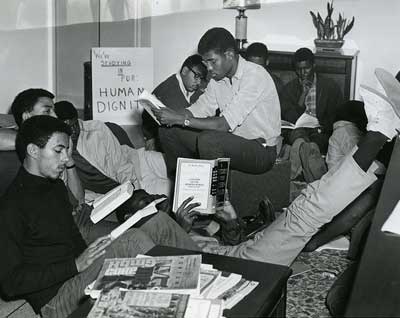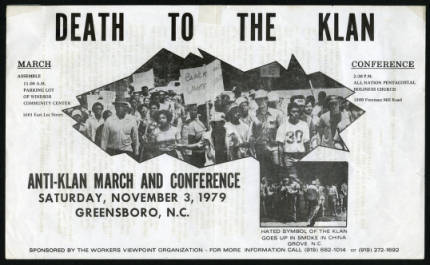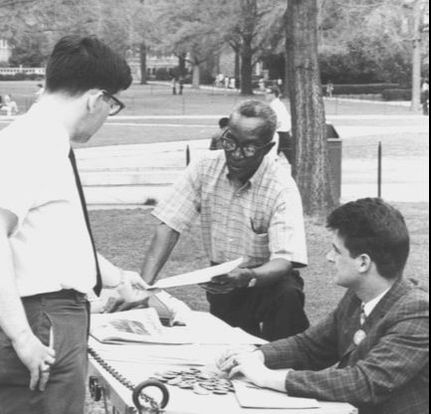Activism is often looked upon as an event outside of the normal flow of history. This is not true. Activism is a part of history. Time and time again, people have fought for fair treatment and equal access. These efforts all culminate into the liberties and resources that we enjoy today. Duke has a rich history of activism that contributes to the University's current diversity and prestige -- a history that is inseparable from its institutional legacy.
Allen building study-inIn 1967, thirty-five African American students from the Afro-American Society staged a "study-in" in front of President Knight's office, which resulted in a university anti-segregation policy.
GAY MARRIAGE AT THE CHAPELStudent and faculty protestors opposed the ban on celebration of same-sex marriages at the Chapel, which was enacted in 1995. Five years later, this ban was reversed.
rev. dr. martin luther king jr. speechesThe renowned civil rights leader made five public appearances in Durham, including one at Duke's Page Auditorium in 1964.
take back the nightIn 1987, the Coalition for a Women's Center at Duke sponsored a march titled, "Take Back the Night" to support women students' right to walk on campus unafraid and unescorted.
|
greensboro kkk murderscontent warning: murder, white supremacist violence
In 1979, six Ku Klux Klan defendants involved in the murder of five protestors in Greensboro, NC -- including two Duke alumni -- were acquitted. Student protestors urged for the University to respond, but the University refused.
local 77 IN THE SILENT VIGILOfficial accounts of the Silent Vigil of 1968 recognize it as a student-led movement. These accounts, however, fail to properly credit the central role of AFSCME Local 77, the university workers' union, founded in 1965 by Oliver Harvey among others.
|
DO YOU KNOW A STORY WE DON'T?
Please share with us, so that we can continue to grow this database.



